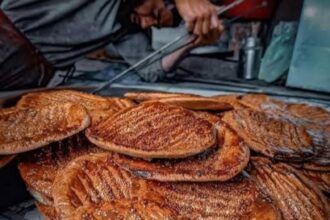The Pashmina Testing and Quality Certification Centre (PTQCC) in Srinagar has recently undergone a significant upgrade with the installation of a state-of-the-art HR Digital Microscope System. This advanced equipment, located at the Craft Development Institute, is set to revolutionize the testing and certification process for Pashmina fibres, which are highly valued for their quality and softness. The introduction of this technology marks a crucial step in promoting genuine hand-made products from Kashmir, particularly in securing the prestigious Geographical Indication (GI) Label.
The GI Label serves as a mark of distinction that authenticates products originating from specific geographical locations, ensuring that consumers receive high-quality goods that reflect the traditional craftsmanship of the region. With the new HR Digital Microscope System, PTQCC will enhance its capability to perform precise and efficient testing of Pashmina fibres. This means that only authentic Pashmina products will be certified, thus safeguarding the integrity of this traditional craft and protecting it from counterfeit products that have flooded the market.
A spokesperson from the Handicrafts and Handloom Department, Kashmir, emphasized the importance of this upgrade, stating, “This new equipment will not only bolster the Pashmina industry but also provide a major fillip to the entire handicraft and handloom sector in J&K. It will help artisans and craft businesses access new markets and better opportunities.” The ability to certify products with a GI Label will enhance consumer confidence and increase demand for authentic Pashmina, ultimately benefiting local artisans who rely on this industry for their livelihoods.
To ensure that the staff at PTQCC can effectively operate the new microscope system, comprehensive training was provided by the original equipment manufacturer (OEM). This training equips the technicians with the necessary skills to handle advanced testing procedures, thereby increasing efficiency and accuracy in quality control. As local artisans gain more recognition for their high-quality products, the entire handicraft industry stands to benefit from this enhanced capacity for quality assurance.
In anticipation of an increased influx of products seeking certification at PTQCC, the Handicrafts and Handloom Department has submitted a proposal worth ₹1.35 Crore for the procurement of a Scanning Electron Microscope (SEM). This advanced technology will further augment testing capabilities by allowing for detailed analysis of fibre structure and composition. The SEM is expected to play a vital role in determining various characteristics such as micron count, length, crimp, and other essential quality parameters that define authentic Pashmina.
These developments are part of a broader initiative to improve testing standards and promote GI-certified products across Jammu and Kashmir. In May 2023, PTQCC had already commissioned an OFDA 4000 equipment capable of testing over 40,000 fibres in less than a minute. This technology allows for rapid assessment of fibre quality, enabling quicker turnaround times for certification while maintaining rigorous quality standards.
The implications of these advancements extend beyond mere certification; they represent a commitment to preserving traditional craftsmanship while enhancing economic opportunities for local artisans. By effectively combating counterfeit products and ensuring that only genuine Pashmina reaches consumers, these initiatives are poised to significantly boost the earnings of artisans associated with the Pashmina craft.
Moreover, as awareness grows regarding the authenticity and quality of GI-certified products, there is potential for increased international demand. This could lead to expanded export opportunities for Kashmiri Pashmina, further integrating local artisans into global markets.
In conclusion, the upgrade at PTQCC with the HR Digital Microscope System signifies a transformative moment for Kashmir’s Pashmina industry. By ensuring rigorous testing and certification processes, this initiative not only protects consumers but also uplifts local artisans by providing them with greater access to markets and recognition for their exquisite craftsmanship. As these efforts continue to unfold, they promise to strengthen both cultural heritage and economic resilience in Jammu and Kashmir’s handicraft sector.







